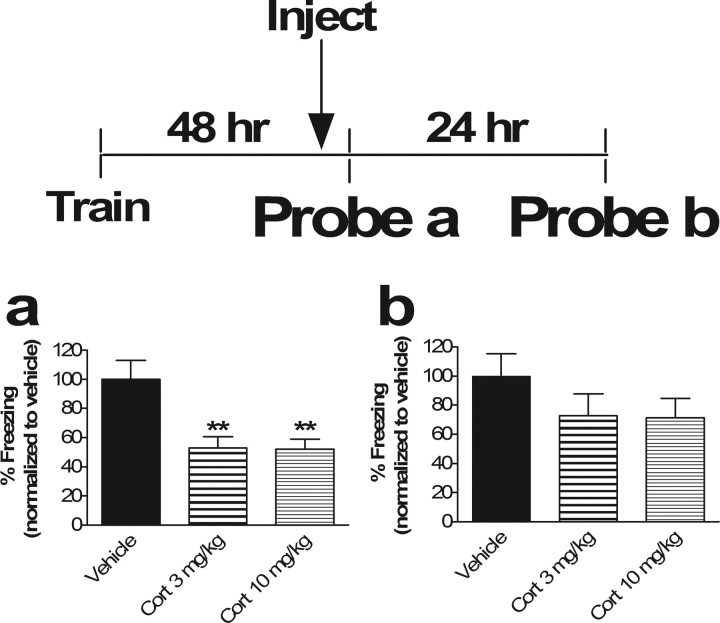Figure 4.
Corticosterone impairs acute retrieval of contextual fear memory without affecting the stability of the underlying memory trace. a, Injection of corticosterone 30 min before memory test impairs retrieval. Results of “Probe a” (contextual memory test performed 48 h after training; percentage freezing in context 30 min after corticosterone injection) are shown. ANOVA revealed a main effect of drug (p < 0.01, F(2,33) = 7.49). Post hoc Tukey's test revealed significant differences between vehicle versus Cort 3 mg/kg (p < 0.01) and versus Cort 10 mg/kg (p < 0.01). No significant difference between Cort 3 mg/kg and Cort 10 mg/kg was observed (p = 0.99). ∗∗p < 0.01; n = 12 in all groups. b, Impairment of memory retrieval by corticosterone had no significant effect on subsequent memory. Results of “Probe b” (contextual memory test performed 72 h after training or 24 h after Probe a; percentage freezing in context 24 h) are shown. ANOVA revealed no main effect of drug (p = 0.28; F(2,33) = 1.33). Because there was no main effect, post hoc Tukey's test revealed no significant differences between vehicle versus Cort 3 mg/kg or Cort 10 mg/kg (p = 0.36 and 0.33, respectively) and no differences between Cort 3 mg/kg versus Cort 10 mg/kg (p = 0.99). When freezing in the Cort groups at 48 h in a (retrieval block by Cort) was compared with that of Cort groups at 72 h in b (memory after retrieval block by Cort), there was no significant difference between Cort groups with retrieval blocked (a) and Cort groups after retrieval blockade (b) (p = 0.26 and 0.23 for 3 mg/kg and 10 mg/kg, respectively).

